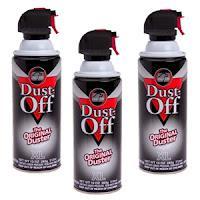
The abuse of inhalants, known in street terms as "huffing," once was limited mostly to adolescents and adults living in poverty.
Chace Swatek, a 35-year-old lawyer with a penchant for driving Mercedes vehicles, did not fit into either of those groups. But a source tells Legal Schnauzer that evidence at the scene caused investigators to conclude that huffing was the likely cause of Swatek's death. An official cause of death will not be known until a toxicology report is completed, and that is expected to take six months to a year.
If Chace Swatek did not fit the common profile of a "huffer," what did law-enforcement officials see at the scene to make them think he was one? The answer to that question is not clear, but a spokesman for the Pelham Police Department said Swatek died on the return portion of a two-mile roundtrip walk from his home in the Mallard Pointe subdivision to a CVS Pharmacy near the intersection of Shelby County 35 and 52. His body was found behind steel pipes that were stacked on the shoulder of the road.
A CVS bag containing a receipt and several items was found near the body. Officials have declined to identify the items in the bag because the case remains under investigation. Those facts, plus the information from our source, hint that Chace Swatek might have become addicted to a product that seems to be changing the face of huffing.
It's called Dust-Off, a refrigerant-based propellant cleaner that is designed to clean computer keyboards and other electronic equipment. You probably could randomly walk into 10 office settings, in any part of the United States, and each one would have multiple cans of Dust-Off. Some office-supplies stores sell them in 12 packs.
The product has become ubiquitous, but it is not always used for its intended purpose. Not long after being introduced, Dust-Off became known for its ability to produce an intense high when inhaled. The process became known as "dusting."
A 2005 MSNBC article describes dusting as "the new killer high for teens." From the article:
There's a new way to get high, and you could have it right next to your desk at home.
They're designed to clean your computer but, if inhaled, these popular products have the potential to kill. It’s called "dusting" — the term comes from the cleaning brand "Dust Off" — and it has become a teenager’s new cheap and easily accessible high, despite a warning on the side of each canister.
This form of inhalant abuse, “huffing,” has been around for years, but dusting is the more specific term associated with the use of cans of any common aerosolized computer keyboard cleaner that contains compressed gas.
By 2010, the Naples Daily News in Florida reported that huffing was becoming a growing problem among adults:
Known as huffing, sniffing, bagging or dusting, experts say inhalants and other household products are most commonly abused by teenagers — 3.9 percent of adolescents abused inhalants in 2007, according to the National Survey on Drug Use and Health.
But in early March, Naples police arrested 37-year-old Jennifer Marie Fernandez after finding her passed out in a puddle of vomit behind an office supply store with two empty cans of dust remover. She was arrested twice before in the past year after being found passed out on dust remover in McDonalds and Walmart bathrooms.
Fernandez is one of at least three women in their mid-to-late 30s who were arrested on charges of huffing dust remover in Collier County over the last two of years.
Dust-Off seems to be the inhalant of choice for adults. Consider these news items from the past few years:
* Utah man is caught huffing air duster while driving (May 2012);
* Oklahoma man arrested for DUI after huffing aerosol duster (May 2012)
* Ohio man, 24, hospitalized after four-day huffing binge (January 2012);
* Wyoming woman, 39, causes fatal accident while dusting (December 2011);
* Florida man, 47, arrested for huffing Dust-Off (April 2011);
* Army Col., 44, dies from dusting (July 2007)
Did Chace Swatek walk to the CVS to buy a can of Dust-Off? (According to its Web site, CVS carries the product.) Did he walk because he already was high and feared being pulled over for DUI? Was he so desperate for a hit that he sneaked behind the pipes, out of the view of traffic, to take a few quick sniffs of Dust-Off? Did Chace Swatek experience a cardiac arrhythmia in what has become known as "sudden sniffing death syndrome"?
We probably will never know the official answer to all those questions. But we do know Chace Swatek purchased several items that were found in a CVS bag near his body--and authorities will not identify those items because they are part of an ongoing investigation. That seems to indicate that something in the bag might have contributed to Swatek's death.
I'm not aware of any prescription drug that is likely to cause a seemingly healthy 35-year-old man to die suddenly behind a stack of pipes. But we know that dusting can cause cardiac arrest and sudden death.
Perhaps the most important point is this: A number of products that are commonly huffed can seem nasty or smelly. That apparently is not the case with Dust-Off. Because of its ties to computers and electronics, it has a professional, cool vibe.
Maybe that's why it appeals to adults who need a quick, "reputable" high. Maybe that's why some adults don't associate Dust-Off with danger--until it's too late.
